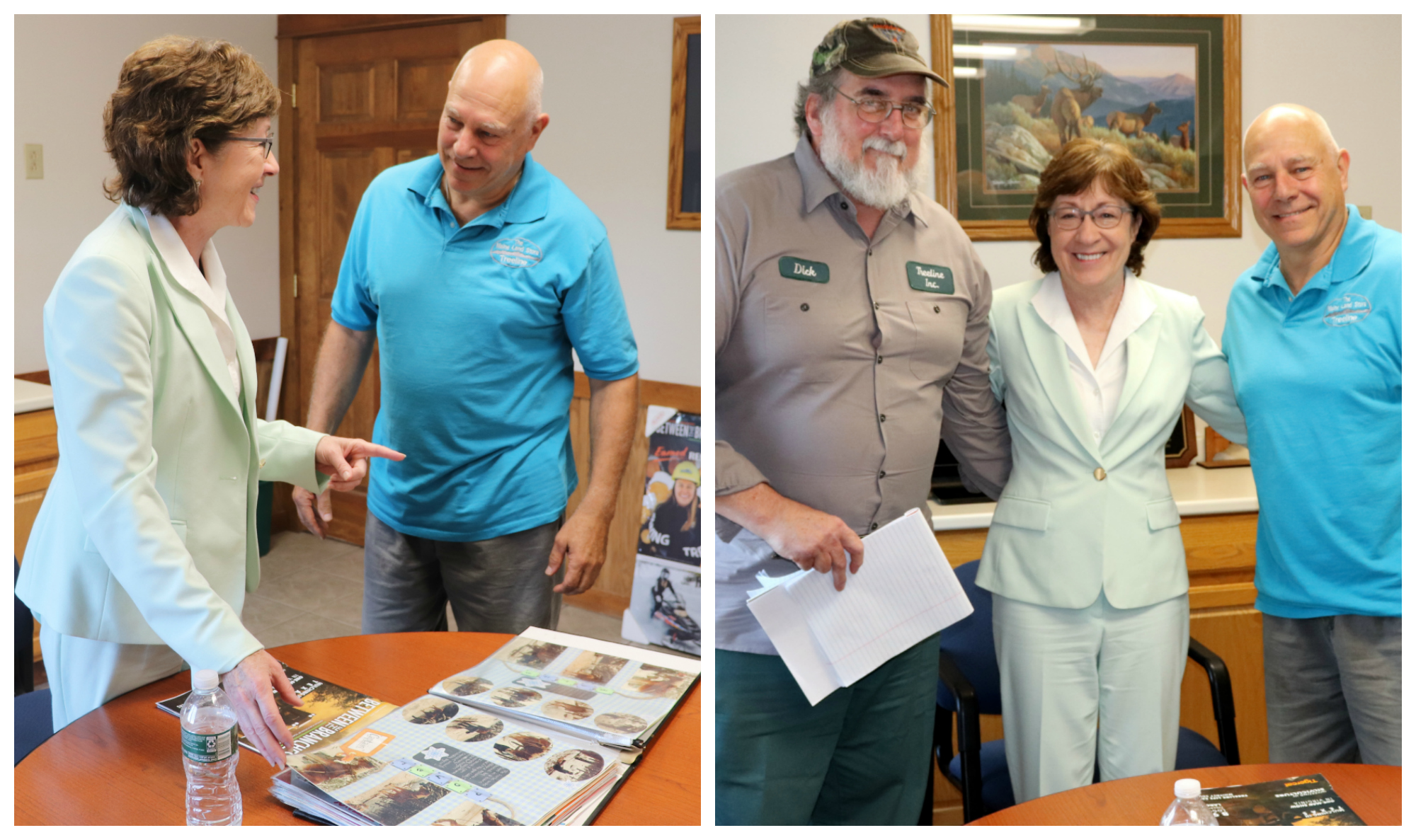Director of MaineHealth Falls Prevention Program that Serves 100,000 Seniors Nationwide Testifies before Senator Collins’ Committee

Click HERE and HERE for high-resolution photos of Senator Collins with Peggy Haynes (L) and Ann Elderkin (R)
Click HERE to read Senator Collins’ opening statement
Click HERE to watch Senator Collins’ opening statement. Click HERE for high-resolution video.
Click HERE to watch Senator Collins’ Q&A with Peggy Haynes. Click HERE for high-resolution video.
Click HERE to watch Peggy Haynes Opening Remarks. Click HERE for high-resolution video.
Click HERE to read the Aging Committee’s report on falls prevention
Washington, D.C.—Last winter, Ginny, a 90-year-old woman who lives alone in coastal Maine, slipped and fell down her front steps. After that accident, her fear of falling discouraged her from going outside, causing her to feel isolated and imprisoned in her own home.
After overcoming some initial skepticism about whether it would help, Ginny decided to sign up for a program called “A Matter of Balance.” Her improvements through the program quickly exceeded her expectations. With the support from the group, she is now getting out and socializing, including a recent trip to an island off the Maine coast.
Senator Collins, the Chairman of the Aging Committee, held a hearing today on the health and economic consequences of falls and explored strategies to prevent and reduce falls-related injuries. Falls are the leading cause of both fatal and nonfatal injuries among older adults that incur $50 billion annually in total medical costs. That number is expected to double to $100 billion by 2030, and the majority of these costs are borne by Medicare and Medicaid.
At Senator Collins’ invitation, Peggy Haynes, the Senior Director of Healthy Aging at MaineHealth who directs A Matter of Balance, testified. Since MaineHealth established the current program in 2006, it has expanded to 46 states and serves nearly 100,000 seniors. This evidence-based program consists of eight two-hour sessions to help participants reduce fear of falling, set realistic goals for increasing activity, change their environment to reduce fall risk factors, and promote strength and balance exercise.
“The health care community has a critical role to play in fall prevention – beginning with screening for falls, assessing fall risk factors, reviewing medications and referring to both medical and community-based fall prevention interventions. Our health system is focused on preventing falls in every care setting,” said Ms. Haynes. “The need for a range of community-based options led MaineHealth to be a founding member of the Evidence Based Leadership Collaborative, promoting the increased delivery of multiple evidence-based programs that improve the health and wellbeing of diverse populations.”
Ms. Haynes went on to describe how Maine Health developed the successful A Matter of Balance program and shared a success story of one participant who went from using a walker to teaching Tai Chi.
“Falls are the leading cause of fatal and non-fatal injuries for older Americans, often leading to a downward spiral with serious consequences. In addition to the physical and emotional trauma of falls, the financial toll is staggering,” said Senator Collins. “Now is the time, and now is our opportunity, to take action to prevent falls. I appreciated the insight Peggy shared on how evidence-based programs can transform the lives of seniors.”
At the hearing, the Committee unveiled a comprehensive report that provides evidence-based recommendations on ways to reduce the risk of falling. The Committee received input from multiple federal agencies, including the Centers for Disease Control and Prevention, Centers for Medicare & Medicaid Services, and the Food and Drug Administration. In addition, approximately 200 stakeholders shared their expertise on this issue, including from UMaine CITE, MaineHealth, and Brie Weisman, an occupational therapist from Rumford.
The Aging Committee’s report made recommendations in four key areas:
· Raising awareness about falls-related risks, prevention, and recovery at the national, state, and local levels;
· Improving screening and referrals for those at risk of falling so that individuals receive the preventive care necessary to avoid a fall or recover after one;
· Targeting modifiable risk factors, including increasing the availability of resources for home safety evaluations and modifications, so that older adults can remain in their homes and communities; and
· Reducing polypharmacy so that health care providers and patients are aware of any potential side effects that could contribute to a fall.
Other witnesses at today’s hearing included:
· Virginia Demby, an 84-year-old advocate for older adults who helps the local senior center wellness manager recruit seniors to take fitness classes;
· Kathleen A. Cameron, the Senior Director of the Center for Healthy Aging at the National Council on Aging who focuses on falls prevention, geriatric pharmacotherapy, mental health, long-term services and supports, and caregiving; and
· Elizabeth Thompson, the Chief Executive Officer of the National Osteoporosis Foundation who raises awareness about the risk of bone loss and fractures.
Click HERE to read their testimonies.
Preventing falls requires a multi-modal approach, and Senator Collins has championed several efforts to reduce fall injuries among seniors. To reverse the harmful cuts that have slashed Medicare reimbursement for bone density testing by 70 percent since 2006, Senator Collins and Senator Ben Cardin introduced the Increasing Access to Osteoporosis Testing for Medicare Beneficiaries Act. These cuts have resulted in 2.3 million fewer women being tested. At the hearing, Senator Collins recognized Ann Elderkin, the executive director for the American Society for Bone and Mineral Research who assisted with the development of this legislation. Ms. Elderkin is a resident of Cape Elizabeth.
In order to help seniors remain in their homes, Senator Collins introduced the Home Health Payment Innovation Act with Senator Debbie Stabenow to give Medicare Advantage and Accountable Care Organizations flexibility to waive the antiquated “homebound” definition so that more people can receive these services. She also introduced the Senior and Disability Home Modification Assistance Initiative Act with Senator Angus King to coordinate programs that provide age-friendly home modification resources.